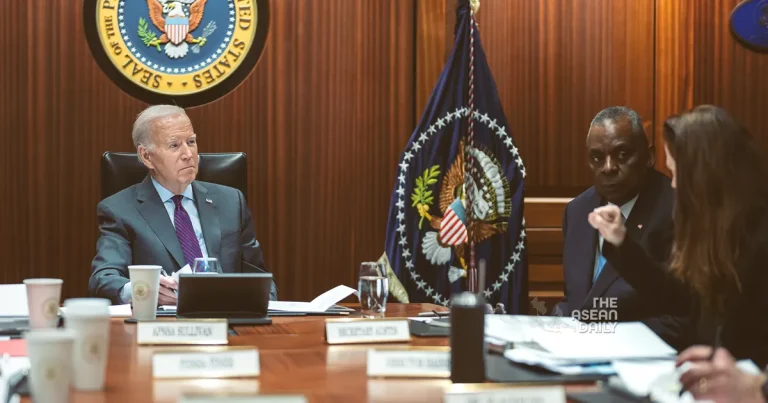30-1-2024 (WASHINGTON) The recent attack on Sunday (Jan 28) that resulted in the killing of three US troops and the injury of numerous others by militants backed by Iran has intensified political pressure on President Joe Biden to take direct action against Iran, a move he has hesitated to make for fear of sparking a wider conflict.
Experts suggest that Biden’s potential responses could range from targeting Iranian forces both inside and outside Iran to opting for a more cautious retaliatory strike specifically against the Iran-backed militants responsible.
Before Sunday’s attack at a remote outpost known as Tower 22 near Jordan’s northeastern border with Syria, American forces in the Middle East had faced over 150 attacks by Iran-backed forces in various locations such as Iraq, Syria, Jordan, and off the coast of Yemen since the eruption of the Israel-Hamas war in October. However, these strikes had not resulted in casualties among US troops on the scale seen in Sunday’s attack. This had afforded Biden the political space to respond to previous attacks by imposing costs on Iran-backed forces without risking a direct confrontation with Tehran.
Although Biden has promised a response to the recent attack, he has not provided specific details.
Republicans have criticised Biden for leaving American forces vulnerable to attacks, characterising them as “sitting ducks” awaiting a drone or missile strike. They argue that Sunday’s attack, carried out by a single unmanned aerial vehicle, underscores the necessity for military action against Iran.
Republican Senator Tom Cotton stated, “The only answer to these attacks must be devastating military retaliation against Iran’s terrorist forces, both in Iran and across the Middle East.”
Representative Mike Rogers, the leading Republican on the US military oversight committee in the House of Representatives, echoed this sentiment, calling for action against Tehran and its proxies.
Former President Donald Trump also weighed in, attributing the attack to what he perceives as Biden’s weakness and surrender.
The Biden administration maintains that it takes extensive measures to safeguard US troops worldwide.
However, Democratic Representative Barbara Lee expressed concern that Biden’s approach to containing the Israel-Hamas conflict to Gaza was faltering, warning of its potential to escalate into a regional war.
Democratic Representative Seth Moulton, a Marine Corps veteran who served multiple tours in Iraq, cautioned against calls for war, emphasising the difficulty of deterrence and the grave consequences of conflict. He urged for a strategic response, while challenging those advocating for war to consider the ramifications for military personnel and their families.
Experts warn that any military strikes against Iranian forces within Iran could prompt Tehran to retaliate, potentially escalating the situation into a full-scale conflict in the Middle East.
Jonathan Lord, director of the Middle East security programme at the Centre for a New American Security, suggested that targeting Iran directly would raise existential questions for the regime.
Charles Lister of the Washington-based Middle East Institute anticipated that a likely response would involve targeting significant militants or high-value targets associated with Iran-backed groups in Iraq or Syria.
A US defence official, speaking anonymously, highlighted the uncertainty surrounding the potential consequences of attacking Iran, questioning the strategic benefits unless the US is prepared for an all-out war.
Despite previous strikes by Israel and the US against Iranian targets, including the assassination of top Iranian general Qassem Soleimani, experts remain divided on the efficacy of such actions in deterring Iran.




